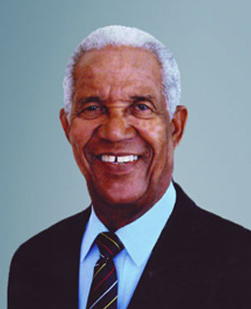GRENADA prime minister Keith Mitchell’s passion for cricket long preceded his passion for politics.
An off-spinner in the Grenada team from 1964 to 1966, he was appointed captain in 1973 following his completion of a Bachelor of Science degree at the Barbados campus of the University of the West Indies (UWI).
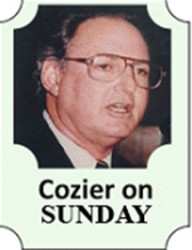 Even through his times as head of government over two terms from 1995 to 2008 and 2013 to the present and as leader of the opposition in the five years following his New National Party (NNP) loss at the polls to the National Democratic Congress (NDC), Mitchell’s intense interest in the fortunes of West Indies cricket has seldom diminished.
Even through his times as head of government over two terms from 1995 to 2008 and 2013 to the present and as leader of the opposition in the five years following his New National Party (NNP) loss at the polls to the National Democratic Congress (NDC), Mitchell’s intense interest in the fortunes of West Indies cricket has seldom diminished.
He is now as widely known as the head of Caricom’s sub-committee on cricket as Grenada’s prime minister.
As far back as the West Indies thrashing in a 3-0 whitewash in Pakistan in 1997-98, he called for heads of CARICOM (Caribbean) governments to discuss the state of their cricket.
“I wouldn’t want to politicise the cricket at all because I don’t think it should be in the realm of politics but it certainly affects West Indians in every sense of the word and therefore as leaders I feel we should examine it,” he said. It has been his mantra since, becoming more and more strident as the decline escalated and the main point of reports commissioned by the West Indies Cricket Board (WICB) to review its governance structure were shelved.
By now, Mitchell was utterly frustrated by the WICB’s failure to accept that reformation of its structure was long overdue. Seeking to put an end to the
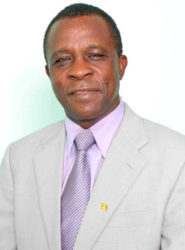
impasse, he persuaded the board a year ago to join the Caricom sub-committee on cricket in appointing yet another review panel on the issue.
It made no difference. The latest group, chaired by Dr. Eudene Barriteau, principal of the UWI’s Barbados campus, including the presidents of the Caribbean Court of Justice (CCJ) and the Caribbean Development Bank (CDB) and Deryck Murray, West Indies vice-captain and wicket-keeper in the heyday of the 1960s and 1970, was harsh in its judgment.
“It is now past the time to accept that the current governance structures are obsolete,” it maintained. Its main recommendation was the immediate dissolution of the board and the resignation of its current members to make way for
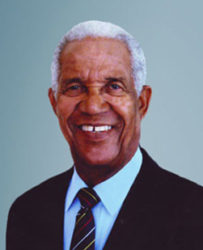
the installation of a “new governance framework.”
It was a proposal the WICB would not accept, triggering a heated war of words between Mitchell and WICB president Dave Cameron.
Mitchell turned to his fellow Caricom heads for their crucial approval of the Barriteau proposal at their annual meeting in Belize. He reported their agreement was unanimous.
It was an unrealistic hope among the disparate mini-states of the cricketing Caribbean. The attempt at political federation was shattered after four years by the withdrawal of Jamaica and Trinidad and Tobago. The two countries are presently at odds over financial and immigration issues. There is usually some disagreement over fishing in someone else’s territorial waters.
Antigua-Barbuda prime minister Gaston Browne, previously a member of Caricom’s sub-committee on cricket, was the first to change tact, stating that he was no longer in favour of dissolving the WICB. It was not clear what brought about his U-turn. Barbados’ prime minister Freundel Stuart’s take was that “West Indies cricket cannot be run by any politician,” a thinly veiled dig at Mitchell.
Browne’s solution to the problem of playing standards was simplistic, bordering on the naïve. “The batsmen, they need to focus on making runs; the
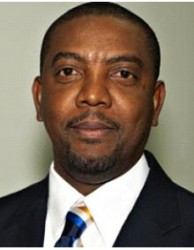
bowlers need to focus on taking wickets, they all need to field properly, coaches need to concentrate on coaching and those who are involved in administration concentrate on administration,” he told the Observer newspaper.
Other developments continued to weaken the call for the WICB to completely reinvent itself. The Board of Control for Cricket in India (BCCI) announced it was resuming bilateral ties, suspended after the withdrawal of the WICB’s squad from the tour of India in October 2014, by sending a team to the Caribbean for four Tests in July and August; it would also drop its claim for US$42 million compensation for the remaining abandoned matches.
At the same time, Darren Sammy, the normally level-headed captain of the men’s T20 champions in India, consciously timed the end-of-match presentation for his impassioned censure of the WICB’s disrespect for the players, contrasting it with Mitchell’s backing during the tournament.
WICB president Dave Cameron responded with an apology “to the millions of fans who witnessed what could be deemed inappropriate, comments” by Sammy. They were sentiments repeated almost word for word by the ICC at its board meeting in Dubai in April. Neither seemed to understand the reason what Sammy hoped to achieve for the players
Under such rare pressure, Mitchell found comfort in the unequivocal backing for the Barriteau report from a group of seven celebrated West Indian players, known as the ‘Legends’. They included two national heroes, the game’s greatest all-rounder Sir Garry Sobers of Barbados and its most devastating batsman Sir Viv Richards of Antigua-Barbuda. Two other knights, Sir Wes Hall and Sir Andy Roberts, Deryck Murray, Charlie Griffith and Roger Harper completed the list of those invited to Grenada by Mitchell to hear their views on the issue. Desmond Haynes was another who joined by telephone link.
They subsequently stated their position.
“The board is an oligarchic structure that considers itself answerable to no one but itself,” they charged. “It is one of the few sporting institutions that have remained virtually unchanged in attitude and structure in the last 70 years or more. Inexplicably, the WICB prefers to maintain the status quo and yet, it expects to get different results while it continues to do the same things.”
It was the first time Legends had made their collective views known on any issue. They simply had never been consulted by the WICB.
They carry considerable clout. In the circumstances, and however reluctant he may be after so much work on the Caricom sub-committee, Mitchell needs to consider pulling back in favour of such formidable personalities whose cricketing exploits render them icons with the increasingly disenchanted public.
The Caricom heads of government meeting in Georgetown in July is as good a place to start for Sir Garry, Sir Viv and the others to emphasise their concern for the future of West Indies cricket.

